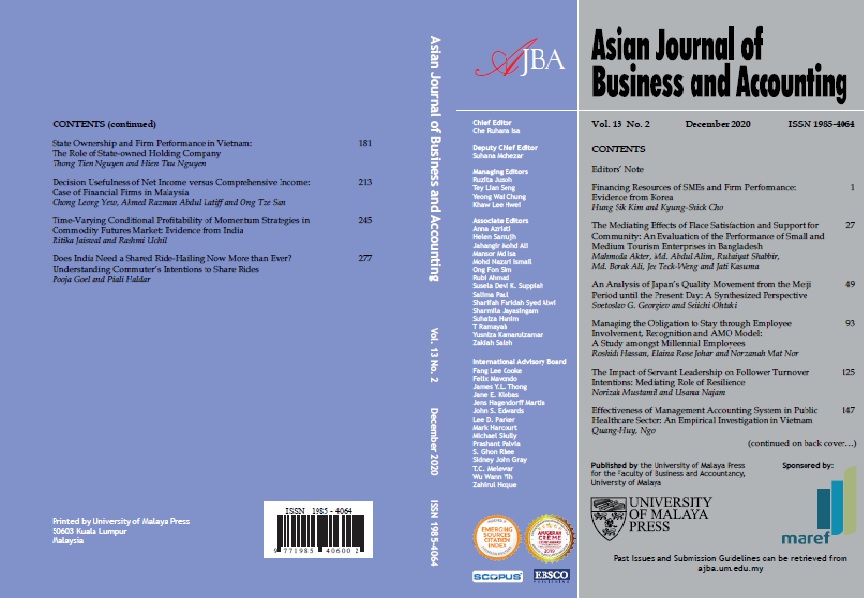Decision Usefulness of Net Income versus Comprehensive Income: Case of Financial Firms in Malaysia
Main Article Content
Abstract
Research aims: This paper aims at investigating the decision usefulness, namely predictive power and value relevance, of Net Income (NI) in comparison with Comprehensive Income (CI) for financial firms in Malaysia.
Design/Methodology/Approach: Panel data analysis techniques are used. An unbalanced panel data is obtained from 29 financial firms listed in Malaysia from 2012 to 2017.
Research findings: Pertaining to predictive power tests, there is not enough evidence to conclude that one accounting metric has better predictive power than the other. In terms of value relevance, the results show that NI is better than CI using both Price and Return models. This indicates that NI is more decision useful to investors than CI for financial firms in Malaysia.
Originality: This study expands on the literature on the decision usefulness of NI in comparison with CI for financial firms in the context of an emerging economy with a smaller and less efficient market in the Asian region such as Malaysia. This study is related to fair value accounting (FVA) where it is still underexplored in the Malaysian setting. Hence, this study may provide some insights to the financial statements’ users in understanding the effects of FVA on reported earnings in Malaysia where such evidence is lacking.
Practitioner/Policy implications: The findings may assist investors in making better investment decisions in the Malaysian market. This study may benefit the academicians by offering a body of knowledge as a reference for furthering and broadening their research on this area in other jurisdictions. The paper may also be relevant to the standard setters, regulators, and policymakers as it offers empirical evidence on the decision usefulness of accounting information disclosure in the context of an emerging country such as Malaysia.
